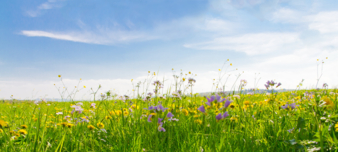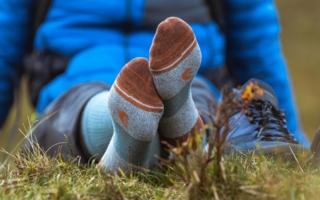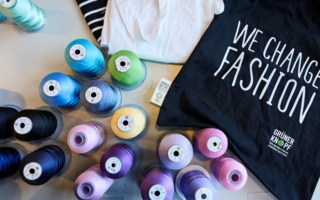06/10/2016 – Sustainability — auf Deutsch lesen
How sustainable is Oeko-Tex?
Textile production should become more sustainable, socially responsible and environmentally friendly. What about OEKO-TEX? textile network asked the OEKO-TEX Association.
The complete OEKO-TEX system offers raw material manufacturers, spinning and weaving plants, finishers, manufacturers of ready-made-clothes and retailers as well as brands an extensive and practical solution for the increased demands on the textile industry. OEKO-TEX offers different services for maximum product safety and sustainable production in the textile chain.
For example?
As a voluntary certification system for textiles tested for harmful substances of all types, the independent STANDARD 100 by OEKO-TEX has been making an effective contribution to removing undesirable substances from textile articles for more than 20 years. More than 150,000 STANDARD 100 by OEKO-TEX certificates have already been issued. Over 10,000 manufacturers, brand providers and retailers in 98 countries work with OEKO-TEX® to ensure that their products are tested for possible harmful chemicals in accordance with the STANDARD 100.
But for many, the STANDARD 100 doesn't go far enough....
This is where STeP by OEKO-TEX comes into play - the OEKO-TEX certification tool for environmentally friendly and socially responsible production facilities, brands and retailers along the textile chain. STeP certification consists of a modular analysis of all relevant company areas (use of chemicals, environmental performance, quality management, environmental management, social responsibility, and health and safety), a web-based assessment and an audit of the production facilities by OEKO-TEX.
And what about the “MADE IN GREEN” label?
With the new MADE IN GREEN by OEKO-TEX label, OEKO-TEX offers companies in the textile industry the opportunity to advertise directly on the product the services provided along the supply chain with regard to socially responsible working conditions and environmentally friendly production processes. The basis for the label is certification in accordance with STeP by OEKO-TEX and also a successful completed test for harmful substances as per the STANDARD 100 product certification by OEKO-TEX. Basically, any finished textile items and semi-finished products at all levels of the textile supply chain can be granted the MADE IN GREEN by OEKO-TEX label.
In addition, each item certified with the MADE IN GREEN label also features a unique product ID or QR code which provides full traceability and transparency for the consumer.
The labelling system gives them access to information regarding all of the production facilities along the textile chain in which the textile was produced, the stage of production in which the fabrics were employed and the countries in which the product was manufactured.
Keyword is transparency
With MySTeP by OEKO-TEX, customers can manage their complete delivery chain and display the sustainability performance of each individual production facility. As a database with the focus on reinforcing supplier relationships along the textile chain, MySTeP helps to create reference standards and manage risks along the supply chain.
OEKO-TEX has also developed a special offer for chemicals, is this correct?
Yes that's right. ECO PASSPORT by OEKO-TEX is an independent certification system for textile chemicals, dyes and accessories. A two-stage verification process analyses whether the compounds and each individual ingredient meet specific requirements with regard to sustainability, safety and compliance with statutory regulations.
And what is your latest tool?
This is something we're particularly proud of! DETOX TO ZERO by OEKO-TEX enables manufacturers along the textile chain who want to meet Greenpeace requirements to assess the status of their chemicals management systems and the quality of their wastewater and sludge and to have these documented through credible independent verification.
In doing this, OEKO-TEX would like to make a further contribution to enable companies better identify harmful substances in textile production, to handle them in a responsible way and eliminate them incrementally by 2020 in the context of the Detox demands.
Thank you very much for your informative explanations and this interesting overview for our readers!




